Why AI Trust Has Become the New Ranking Factor
At VISIBLE™, we’ve been studying a new truth emerging in digital visibility. If your brand doesn’t exist inside the Citation Ecosystem, it won’t appear in AI-generated outputs, no matter how comprehensive your owned content is.
Generative Engine Optimization (GEO) is not a game of optimizing web pages for blue links. It’s about ensuring your brand achieves recognition inside the inference and retrieval layers of Large Language Models (LLMs).
If your brand isn’t being cited across authoritative domains, AI models will not include you in generative answers.
From Web Pages to AI Answers
The Death of Blue Links
For decades, SEO was about ranking web pages. Today, users are increasingly receiving direct answers generated by AI systems like ChatGPT, Gemini, and Perplexity. Google’s Search Generative Experience (SGE) is a case in point (Google SGE source).
This shift signals a fundamental change: The locus of search visibility has moved from clickable links to AI-generated summaries.
How LLMs Source and Synthesize Information
LLMs don’t rely on single sources. Instead, they synthesize answers using Retrieval-Augmented Generation (RAG) pipelines and embedded Knowledge Graphs.
These systems prioritize brands based on external Brand Signals: authoritative citations, source diversity, and recency. OpenAI’s work on improving RAG trustworthiness (OpenAI RAG research) and Perplexity’s Knowledge Graph documentation (Perplexity Knowledge Graph) highlight how crucial external citations have become.
This is why your brand’s Citation Ecosystem matters.
What is the Citation Ecosystem?
The Citation Ecosystem represents the distributed network of digital touchpoints where your brand is mentioned, referenced, or linked by third-party sources.
These sources include:
- Authoritative media coverage
- Analyst reports (e.g., Gartner Magic Quadrant)
- Reddit and Quora threads
- Academic papers
- User-generated reviews
- Third-party blogs
How AI Agents Crawl, Ingest, and Rank Citations
AI systems index and rank these citations based on factors like domain authority, content recency, contextual relevance, and Source Domain Diversity. The more distributed and authoritative your brand citations, the stronger your visibility within LLM inference layers.
For a deeper dive into how AI understands entities in this way, see our related piece: How AI Understands Entities.
The Brand Trust Graph Model
At VISIBLE™, we’ve developed the VISIBLE™ Framework called the Brand Trust Graph, a proprietary visual and analytical model representing how your brand’s digital footprint interlinks across the Citation Ecosystem.
Weighting Nodes: Authority, Recency, Diversity
AI systems assign different weights to nodes:
- High Authority: Gartner, Forrester, NYT
- High Recency: Recent Reddit discussions
- High Diversity: Citations from multiple, unrelated domains
How HubSpot Dominates in Perplexity
Searching “best inbound marketing platforms” in Perplexity shows HubSpot appearing consistently.
Why? HubSpot is cited across:
- Analyst Reports
- Media Articles
- Reddit Discussions
- SaaS Review Sites
Its Brand Trust Graph creates overwhelming Signal Density, making omission algorithmically unlikely.
The Rise of Source Domain Diversity
AI systems value not just the quantity but the diversity of citation sources.
Why AI Favors Distributed, Multi-Domain Citation Patterns
LLMs penalize echo chambers. Brands with mentions across diversified, high-trust domains perform better in Generative Engine Optimization.
Examples include:
- Reddit & Quora: Consumer discussions feeding Gemini and ChatGPT outputs
- Gartner & Forrester: Enterprise credibility-enhancing B2B answer inclusion
- Review Platforms (G2, Trustpilot): Amplifying product-led brands in RAG pipelines
Signal Density and LLM Ranking Behavior
Signal Density measures how often your brand appears across distinct, high-authority domains within a topic cluster and timeframe.
How Citation Frequency Impacts Generative Answer Inclusion
High Signal Density generates a gravitational pull. AI models resist excluding brands with multi-source, high-frequency citations.
Example:
For the query “Top CRM software,” Salesforce dominates generative outputs because of its high Signal Density across tech media, analyst reports, and user forums.
How the GoVISIBLE Platform Maps and Measures Your Brand’s Citation Health
The GoVISIBLE Platform operationalizes this entire analysis.
Citation Gap Analysis Module
Our Citation Gap Analysis visualization helps brands see:
- Top Citation Domains
- Citation Signal Galaxy
- Source weighting by Authority and Recency
- Citation gaps across engines
- Signal Density Reporting Module
Track :
- Citation frequency
- Source domain diversity
- Overall Visibility Score across AI-relevant domains
Why AI Doesn’t Trust You Yet
The evolution from ranking pages to ranking answers marks a permanent shift. Without a distributed, high-authority Citation Ecosystem, your brand remains invisible inside LLM inference layers.
Traditional SEO strategies are no longer sufficient. This is why Generative Engine Optimization exists—and why your Citation Ecosystem must be an organizational priority.
The Future of Brand Trust in AI
Over the next 24 months, we expect:
- Increased LLM Source Transparency: Models will disclose citation sources more frequently.
- Greater Emphasis on Multi-Domain Validation: LLMs will require diverse external signals.
- Live Brand Trust Graphs in AI Retrieval Layers: Trust computation for each entity will become dynamic.
For brands, the mandate is clear: Build a broad, high-authority, and diverse Citation Ecosystem to remain visible inside generative answers.
Building Your Citation Ecosystem for GEO
Generative Engine Optimization starts with understanding how AI systems evaluate trust. Without external, verifiable citations, your brand won’t pass the selection filters of LLMs.
Next Step: Map, measure, and amplify your Brand Trust Graph using the GoVISIBLE Platform.
Ready to map your Brand Trust Graph?
See how the GoVISIBLE Platform can help you build your Citation Ecosystem for Generative AI visibility.

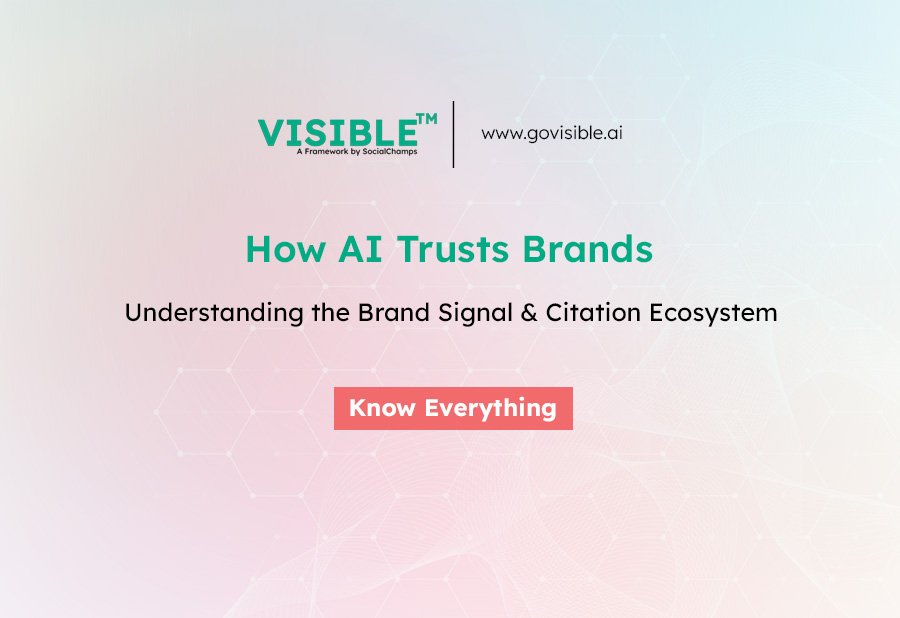
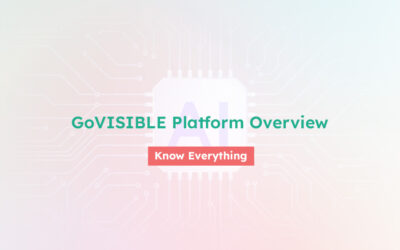
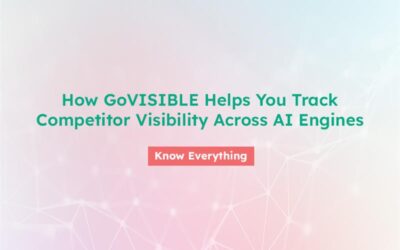
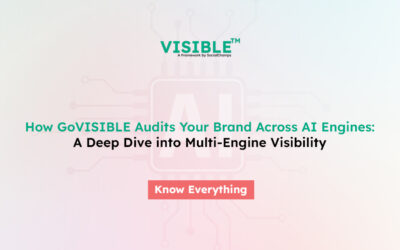

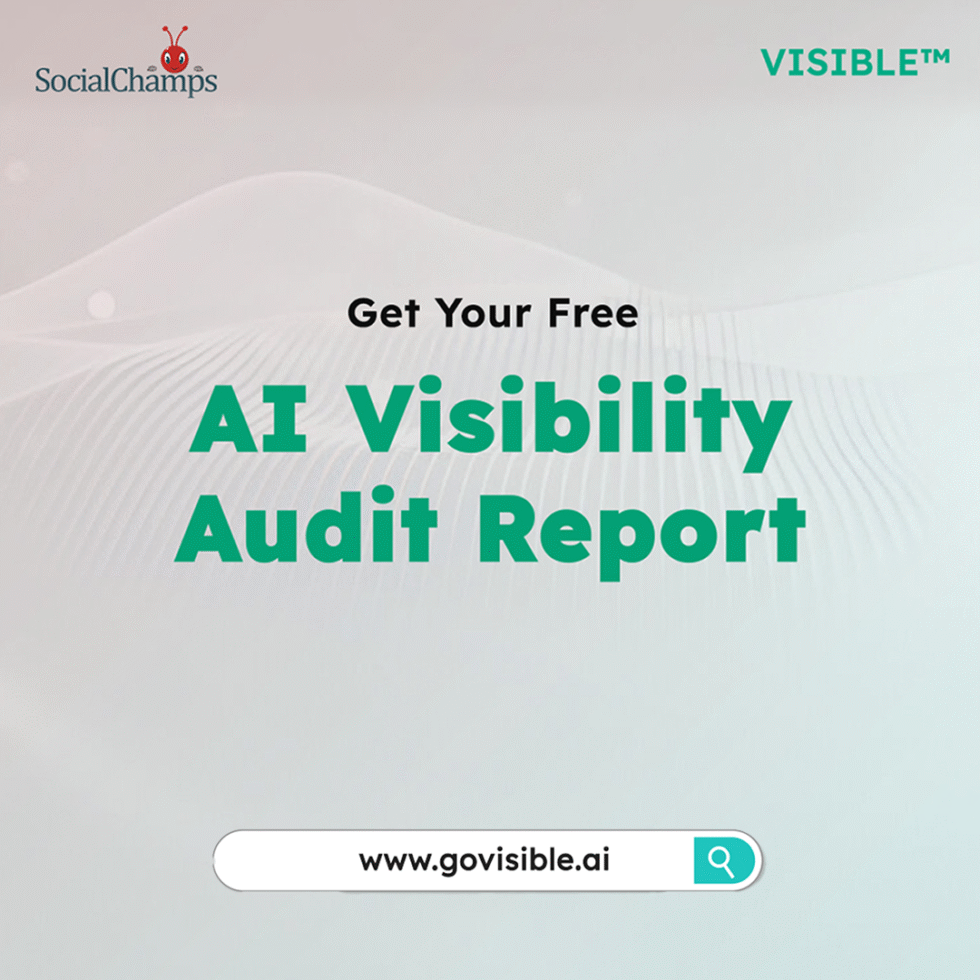
0 Comments